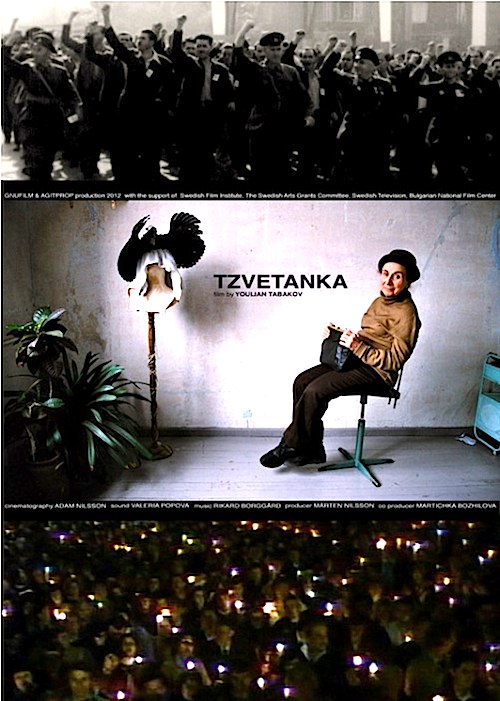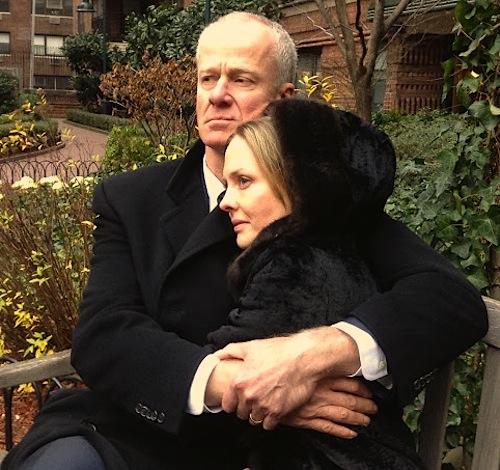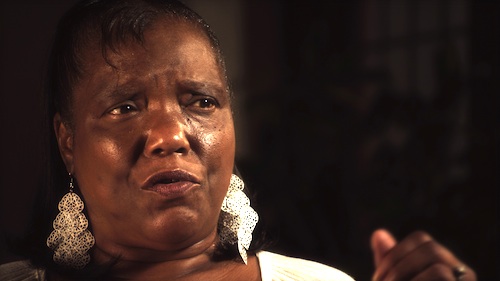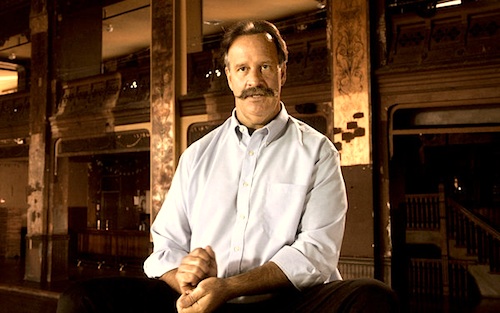By Joe Bendel. Something as profoundly traumatic as the Cultural Revolution cannot simply be papered over. It hangs over the national psyche, like a malevolent ghost. As much as present day China embraces globalism and crony capitalism, the excesses of the Mao years still have a bearing on it. Indeed, it is part of the internal contradictions Bo Wang analyzes in his documentary-essay China Concerto, which screens as part of MoMA’s 2013 Documentary Fortnight.
A film of observation and rumination, Concerto has a pseudo-epistolary structure, featuring a woman’s disembodied voice reading a man’s dispatches from China. The writer is not a passive viewer, having trained himself to dissect imagery and look for the telling details nobody is supposed to notice. He is in the right place for it. Aside from the movie clips and newscast excerpts incorporated for illustrative purposes, Concerto was almost entirely shot in Chongqing, the China’s version of Chicago. While Bo Wang was shooting, Bo Xilai’s neo-Maoist “Red Culture” campaign was in full swing, but the Chongqing party secretary would soon be removed after the Wang Lijun scandal brought international media attention to rumors of extensive corruption.
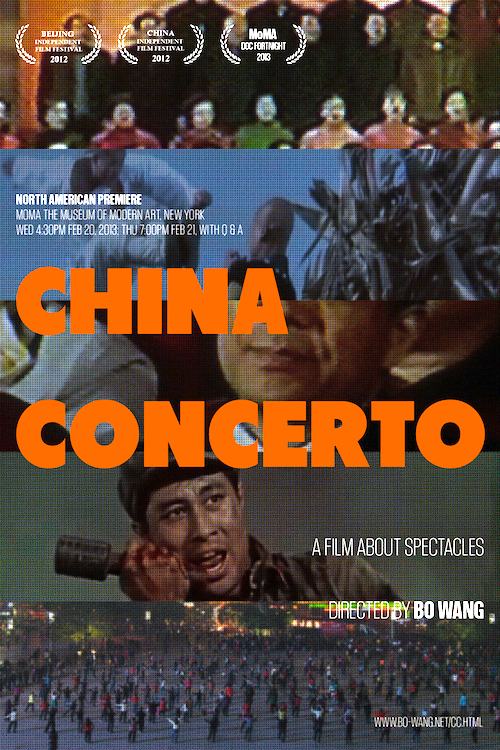 He certainly captured images that are both striking and ironic. Perhaps his richest vein of material is the park where viewers witness couples dancing under a model of Mount Rushmore and an elderly man reclining near a Statue of Liberty. Yet, tucked away, there is also a cemetery dedicated exclusively to Red Guards that remains padlocked and shunned. According to the woman’s tantalizingly vague narration, it seems many of those interned were involved in an incident of cannibalism, which has since been consigned to the memory hole. One suspects this park could easily be the subject of an entire documentary feature.
He certainly captured images that are both striking and ironic. Perhaps his richest vein of material is the park where viewers witness couples dancing under a model of Mount Rushmore and an elderly man reclining near a Statue of Liberty. Yet, tucked away, there is also a cemetery dedicated exclusively to Red Guards that remains padlocked and shunned. According to the woman’s tantalizingly vague narration, it seems many of those interned were involved in an incident of cannibalism, which has since been consigned to the memory hole. One suspects this park could easily be the subject of an entire documentary feature.
It is absolutely fascinating to watch Concerto apply the techniques of deconstruction to official state propaganda. The stand-in for the filmmaker’s stand-in explicitly argues that China’s obsession with spectacle is intended to mask and empower it Communist rulers. It also offers trenchant analysis of the capitalism promoted by the state, a mutation described as “collective capitalism,” in contrast to the western individualistic variety. The implications for the individual in Chinese society are obvious. That is one reason the correspondent always focuses on a single individual when watching sprawling propaganda pageants.
Indeed, Concerto’s concern for the overwhelmed individual is rather noble, in a genuinely subversive way. As if its indie bona fides needed more burnishing, China Concerto holds the distinction of being a selection of the 2012 Beijing Independent Film Festival, which was shutdown not once, but three times by the government. This is a film that simply encourages audiences to think, but some might find that threatening. Highly recommended for sophisticated viewers, China Concerto screens during MoMA’s Documentary Fortnight this Wednesday (2/20) and Thursday (2/21), with the director present for Q&A both nights. For Georgians, it also screens March 27th at Kennesaw State and March 28th at Emory, as part of the well curated Independent Chinese Film Series.
LFM GRADE: A
Posted on February 18th, 2013 at 2:48pm.
